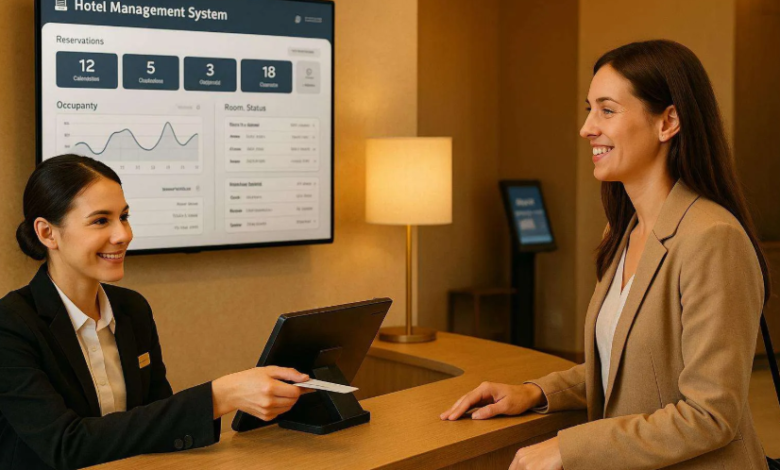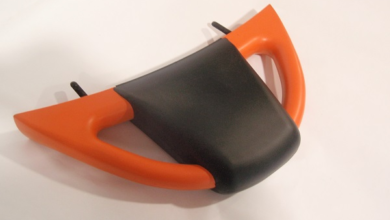What to Look for in the Best Hotel Channel Management Software in 2025

Managing room availability and pricing across several online booking platforms is no longer a side task, it’s a core function in hotel operations. With multiple booking engines, travel sites, and online travel agencies (OTAs) pulling data from the same property, inconsistencies can lead to overbookings, missed reservations, or lost revenue. This is where choosing the best hotel channel management software becomes essential.
A good OTA channel manager should not only sync your listings but simplify operations, reduce manual work, and offer insights that improve booking performance. In 2025, the expectations from a channel management solution are much higher than just syncing room availability. Properties now need tools that are fast, accurate, and built to support growth.
The Core Purpose of a Channel Manager
The purpose of using an OTA channel manager is simple: to make your hotel visible across multiple booking platforms without spending hours on each one. Instead of logging into different OTAs to update availability or adjust rates, you do it once, and the channel manager pushes the updates in real-time.
It’s not just about convenience. Mistakes in manual entry lead to double bookings or lost sales. A well-built software prevents this by keeping inventory and pricing in sync, always.
Why Speed and Accuracy Matter
Booking windows have shortened. Guests are booking closer to their travel dates. This means pricing and inventory must reflect real-time availability. Even a delay of a few minutes can result in mismatched data between platforms.
The best hotel channel management software ensures immediate updates. If a room is booked on one channel, it’s blocked everywhere else right away. This helps reduce overbookings and builds guest trust.
Easy Integrations for Wider Reach
Your OTA channel manager should integrate with as many platforms as possible. This includes major OTAs, regional travel sites, metasearch engines, and even niche booking portals. The more integrations your software supports, the better your visibility.
More channels mean more potential guests. A good channel manager gives you the power to experiment with different platforms and discover new customer sources without a huge time investment.
Centralized Control from One Dashboard
Look for a system that offers a clean and simple dashboard. The best tools let you see everything from one screen: your room inventory, rates, bookings, and performance metrics.
This isn’t just about ease of use, it’s about making faster decisions. For instance, if bookings slow down on a particular OTA, you can adjust your rates or offer deals directly from the platform, without logging in to multiple accounts.
How Real-Time Insights Help Drive Growth
Real-time data isn’t only for updates, it’s for learning. The best hotel channel management software provides insights into which channels are performing well, which dates are underperforming, and where you’re losing money.
Over time, these insights help hoteliers make better choices. You can shift focus to platforms that bring better returns, adjust pricing strategies, or create targeted deals during slow periods.
Support for Different Property Types
Whether you run a boutique hotel, resort, or a serviced apartment, your needs vary. A flexible OTA channel manager lets you tailor features to match your property type.
Some properties may need seasonal pricing. Others may have multiple rate plans, like non-refundable or breakfast-inclusive rates. Your channel manager should handle all this without error.
See also: How Can Procurement Savings Help Your Business?
Streamlining Group Bookings and Promotions
Hotels often run flash sales, promo codes, or limited-time offers to attract guests. A solid channel manager supports these campaigns and pushes them to all your OTAs at once.
Some even help you schedule promotions in advance, automate start and end dates, and track their performance. This takes the guesswork out of campaign management.
Connecting with Your Existing PMS and Booking Engine
Your hotel’s Property Management System (PMS), Booking Engine, and Revenue Management System (RMS) must work in sync. If your channel manager doesn’t integrate with them, you’re left doing manual work again.
Choose a solution that connects to your existing tech stack. The OTA channel manager should act as a bridge, linking your internal operations with the external booking world.
Automation That Works Even When You’re Not Online
Manual updates are time-consuming and prone to errors. Automation is now non-negotiable. From rate updates to inventory changes to blackout dates, everything should be handled automatically once you set the rules.
This not only saves time but allows your hotel to stay open for bookings 24/7, even while you sleep.
Reliability and Uptime
If the system goes down, your hotel stops selling rooms online. A reliable channel manager should guarantee high uptime and smooth performance. This isn’t just about tech, your revenue depends on it.
Regular updates, customer support, and strong server architecture are things to look for. It’s not just about how many features a software has; it’s how stable and dependable it is under pressure.
Conclusion
Choosing the right OTA channel manager isn’t just about features. It’s about how it fits into your daily workflow. The right software takes away the stress of managing multiple platforms, letting hotel staff focus on guest experience and service.
Many hoteliers today are turning to RateTiger for exactly this reason. With 450+ online channel integrations, 612+ million ARI updates processed every year, and seamless real-time control over pricing and availability, RateTiger helps hotels gain 20% to 25% more online bookings. It brings both reach and reliability to the table, qualities that any growing property can benefit from.
To stay competitive in 2025, hotels need more than just visibility, they need control, flexibility, and speed. That’s what defines the best hotel channel management software today. When your operations run smoothly in the background, your staff can stay focused on what matters most to your guests.







